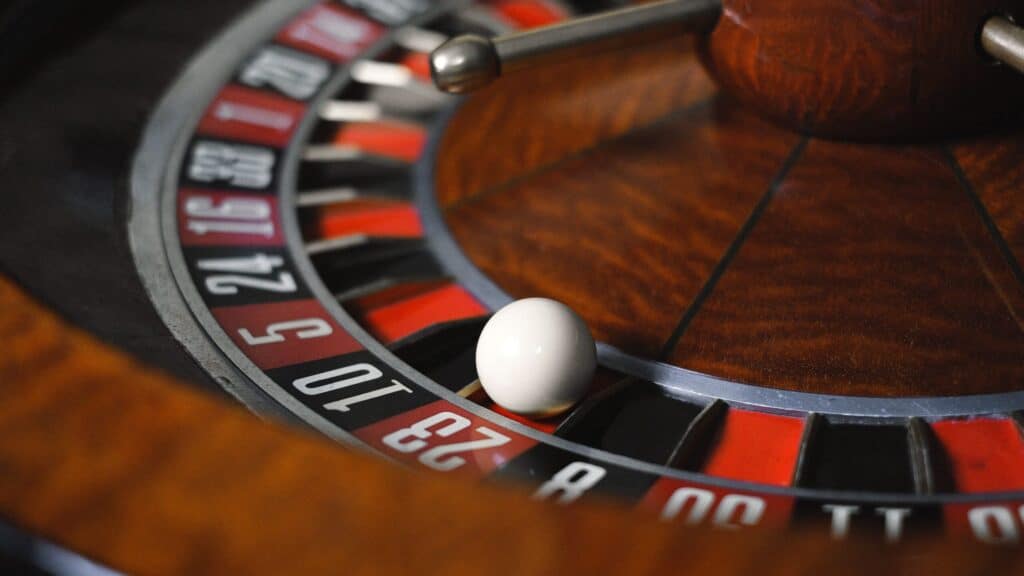Roulette is one of the most iconic and exciting casino games, offering players the chance to win big with just a single spin of the wheel. While the game is primarily based on luck, there are strategies that can help you maximize your payouts and increase your chances of winning. This comprehensive guide will explore various techniques, tips, and tricks for getting the most out of your roulette experience. Whether you are a beginner or an advanced player, you'll find valuable insights on how to optimize your game and boost your payouts.
Understanding the Basics of Roulette
Before diving into advanced strategies, it’s essential to understand the fundamentals of roulette. The game consists of a wheel with 37 or 38 numbered slots, depending on the variant you’re playing. The numbers range from 0 to 36, with a single zero in European roulette and a double zero in American roulette. The objective of the game is simple: bet on where the ball will land after the wheel spins.
The available betting options include individual numbers, groups of numbers, and color bets. There are two primary types of roulette: European and American. The European version offers better odds because it has only one zero, while American roulette has an additional double zero, which increases the house edge.
European vs. American Roulette
As mentioned, the main difference between the two roulette versions is the number of zero slots. Here’s a breakdown of the key differences:
- European Roulette: Features 37 slots (1-36 and a single zero). The house edge is 2.7%.
- American Roulette: Features 38 slots (1-36, a single zero, and a double zero). The house edge is 5.26%, making it less favorable for players.
For players looking to maximize payouts, European roulette is the better option due to the lower house edge.
Maximizing Payouts with Effective Betting Strategies
While roulette is largely a game of chance, there are certain betting strategies you can use to optimize your chances of winning and maximize your payouts. Here are some of the most popular betting systems:
The Martingale Strategy
The Martingale strategy is one of the most famous betting systems used in roulette. The basic premise is simple: after every loss, you double your bet. The idea is that when you eventually win, you’ll recover all of your previous losses and make a profit equal to your original bet.
For example, let’s say you start with a $10 bet on a red/black outcome. If you lose, your next bet will be $20. If you lose again, your next bet will be $40, and so on. When you finally win, you’ll recover all your previous losses and make a $10 profit.
While the Martingale strategy can be effective in the short term, it’s essential to note that it can quickly lead to large losses during a losing streak. Additionally, most casinos have table limits, which can prevent you from doubling your bet indefinitely.
The Reverse Martingale Strategy
The Reverse Martingale strategy, also known as the Paroli system, is the opposite of the traditional Martingale system. Instead of doubling your bet after a loss, you double your bet after a win. This strategy allows you to take advantage of winning streaks while minimizing the risk of large losses.
For example, if you start with a $10 bet on red and win, your next bet would be $20. If you win again, you would increase your bet to $40. If you lose, you go back to your original bet of $10. This strategy helps you preserve your bankroll while capitalizing on favorable streaks.
The D’Alembert Strategy
The D’Alembert system is another popular betting strategy that focuses on gradual adjustments. In this system, you increase your bet by one unit after a loss and decrease it by one unit after a win. This strategy is more conservative than the Martingale system and aims to reduce risk while still providing the potential for profit.
For example, if your initial bet is $10 and you lose, your next bet would be $11. If you win, your next bet would return to $10. The idea behind this system is to achieve a balance between wins and losses while minimizing exposure to big losing streaks.
Understanding Payouts and Odds in Roulette
In roulette, the payout you receive depends on the type of bet you place. Some bets have higher odds but lower payouts, while others have lower odds but higher payouts. Here’s a breakdown of the common bet types and their payouts:
Inside Bets
Inside bets are those placed on individual numbers or small groups of numbers. These bets have higher payouts but lower odds of winning.
- Straight Up: A bet on a single number. Payout: 35:1.
- Split Bet: A bet on two adjacent numbers. Payout: 17:1.
- Street Bet: A bet on three consecutive numbers in a row. Payout: 11:1.
- Corner Bet: A bet on four numbers that meet at a corner. Payout: 8:1.
- Six Line Bet: A bet on two adjacent rows of three numbers. Payout: 5:1.
Outside Bets
Outside bets are placed on larger groups of numbers and have a higher probability of winning. However, the payouts are lower.
- Red or Black: A bet on the color of the winning number. Payout: 1:1.
- Odd or Even: A bet on whether the winning number will be odd or even. Payout: 1:1.
- High or Low: A bet on whether the winning number will be in the range of 1-18 (low) or 19-36 (high). Payout: 1:1.
- Dozen Bet: A bet on one of the three dozen groups (1-12, 13-24, 25-36). Payout: 2:1.
- Column Bet: A bet on one of the three columns of numbers. Payout: 2:1.
The key to maximizing your payouts is to find a balance between risk and reward. While inside bets offer larger payouts, they come with lower odds. Outside bets, on the other hand, have a higher chance of winning but offer smaller payouts. A good strategy is to mix both types of bets to create a balanced betting system.
Advanced Techniques for Maximizing Payouts
For experienced roulette players, there are additional techniques that can help maximize payouts and reduce risk. These strategies require a more detailed understanding of the game and its mechanics. Let’s explore some advanced techniques:
The Biased Wheel Strategy
The biased wheel strategy is based on the theory that certain wheels may have imperfections or biases that cause certain numbers to come up more frequently than others. While this strategy is not foolproof, some experienced players have reported success by tracking the outcomes of spins over a long period of time and identifying any patterns.
It’s important to note that most casinos take great care to ensure their wheels are balanced and fair. However, if you’re playing on an older or poorly maintained wheel, there might be slight biases that you can exploit. This strategy requires patience and careful record-keeping.
Using Casino Bonuses to Maximize Bankroll
Many online casinos offer bonuses and promotions that can boost your bankroll. These bonuses can be used to place additional bets or to test different strategies without risking your own money. While bonuses come with wagering requirements, they can provide you with extra funds to maximize your payouts. Be sure to read the terms and conditions of any bonus offers before claiming them to ensure that you are using them effectively.
Practice with Free Roulette Games
One of the best ways to improve your skills and experiment with strategies is to practice with free roulette games. Many online casinos offer free versions of roulette, allowing you to hone your skills without risking any real money. By practicing, you can gain a deeper understanding of the game’s mechanics and test different betting strategies in a risk-free environment.
Conclusion: Mastering Roulette for Maximum Payouts
Maximizing payouts in roulette requires a combination of luck, strategy, and understanding of the game. By choosing the right type of roulette, employing effective betting strategies, and carefully managing your bankroll, you can increase your chances of winning and boost your payouts. Remember that roulette is a game of chance, and no strategy can guarantee consistent wins. However, with the right approach and a bit of luck, you can make the most out of your roulette experience and enjoy the excitement that this iconic casino game has to offer.



